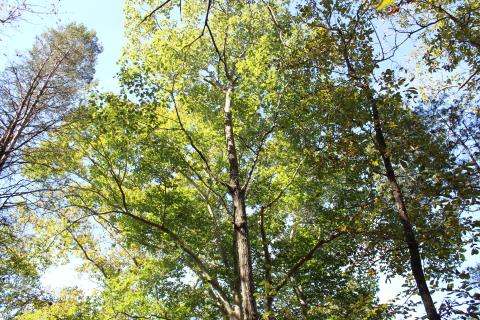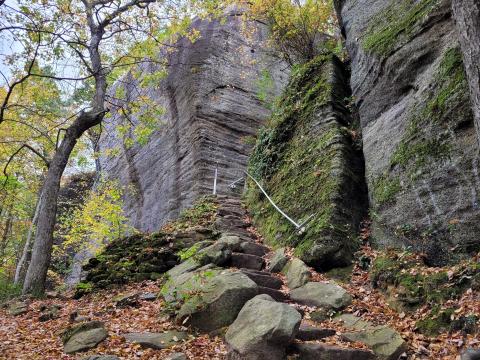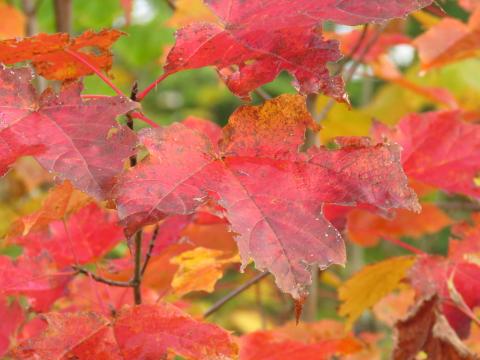1st Quarter Accomplishments of the Northern Forests Climate Hub
Highlights from our work in the first quarter of fiscal year 2024 (October-December).
Increasing carbon literacy on National Forest lands
Addressing climate change in planning management actions on National Forest lands is a USDA Forest Service priority. This includes considering climate change risks and managing carbon uptake and storage in forests and grasslands while balancing a wide range of ecosystem goals. The Northern Institute of Applied Climate Science (NIACS) and NFCH hosted a training for Forest Service staff to update carbon assessments and highlight the latest tools and resources relevant to incorporating carbon considerations into land management planning. We will continue to provide technical support on carbon stewardship to National Forests and other audiences in the year ahead!


Assisting the land trust community with climate adaptation planning
Within the land trust community, there is growing concern about the best way to respond to climate change impacts given challenges of low staff capacity and finite resources. The Land Trust Alliance partnered with NFCH to host an introductory course using the USDA Forest Service Quick Guide to Adaptation Planning for Land Trusts to lead managers and staff through the process of integrating adaptation into their planning activities. The virtual course included participants from throughout the U.S. and Canada and a special session for regional USDA Climate Hubs to engage with participants and provide direct technical support
Advancing knowledge on assisted migration
Assisted migration as a component of reforestation is an emerging topic with many nuances and considerations. At the Midwest Climate Resilience Conference (2023), the NFCH led a symposium to raise awareness and inform professionals on regional assisted migration initiatives and reforestation efforts in the Midwest. Topics included: resistance, resilience, and transition in climate adaptation; respectful and responsible assisted migration with tribal engagement; novel research that includes common garden studies; an initiative to reforest 1 million acres of Minnesota land with climate-smart seed stock; and a community science initiative that focuses on planting and monitoring climate-adapted tree species in Michigan. The NFCH also engaged in other activities supporting the release of the Superior National Forest’s Assisted Migration Plan. Sharing these best practices and new resources will help the forestry community make informed decisions about assisted migration.

Questions? Contact the USDA Northern Forests Climate Hub staff

